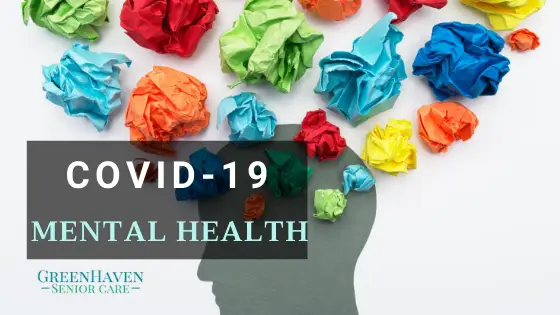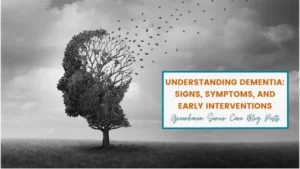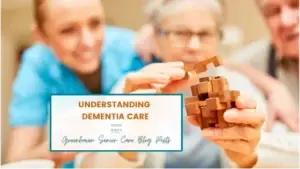
AI Companions for Seniors: A Thoughtful Guide for Families and Caregivers
AI companions for seniors explained by Greehaven Senior Care: what they are, how they help, and what families should consider before choosing one.

COVID-19 is overwhelming itself on its own. Adding worries and anxiety to this can increase its impact. We are advised to social distance and this makes everything even more challenging.
Here are a few self-care strategies to help you cope.

This means getting enough sleep, going to bed, and getting up at the same times each day. Since we stay more at home it is important to stick close to our typical schedule, as much as possible.
Reducing anxiety and improving your mood can easily be accomplished with regular physical activity and exercise. If you have a smartphone you can find apps for activities that include movements, such as dance or exercise apps. If you do not have a smartphone but you can connect to the internet through a computer or a smart TV, you can easily browse Youtube for videos with dance and exercise. You can also get outside in an area that makes it easy to maintain distance from people.
You can choose a well-balanced diet. This means avoiding loading up on junk food, carbs, and refined sugar, limiting caffeine as it can aggravate stress and anxiety.
Reduce the screen time throughout the day and turn off electronic devices for some time each day, including 30 minutes before bedtime. Making a conscious effort to spend less time in front of a screen — television, tablet, computer, and phone can help you relax and recharge.
It is important to set aside time for yourself. Every minute counts, even a few minutes of quiet time can be refreshing and help to quiet your mind and reduce anxiety. Many people benefit from practices such as deep breathing, tai-chi, yoga, or meditation.
Soak in a bubble bath, listen to music, or read or listen to a book — whatever helps you relax. Select a technique that works for you and practice it regularly.
Keeping your regular routine and maintaining a regular schedule is important to your mental health. Stick to a regular bedtime routine and keep consistent times for meals, bathing and getting dressed, work or study schedules, and exercise. Also set aside time for activities you enjoy. This predictability can make you feel more in control.
Constant news about COVID-19 from all types of media can heighten fears about the disease. And can limit your access to disinformation or unreliable sources. We all know that this happens on all mediums, Limiting the time you spend on social media that may expose you to rumors and false information is also important. Also limit reading, hearing, or watching other news, but keep up to date on national and local recommendations. Look for reliable sources such as the CDC and WHO.
Even a small distraction can get you away from the cycle of negative thoughts that feed the anxiety and depression.
Do hobbies that you enjoy, and you can do at home. Identify a new project. Clean out that closet you promised you would get to. Do something positive to manage anxiety. This is a healthy coping strategy.
Choose to focus on the positive things in your life, instead of dwelling on how bad you feel. Create positive mantras to recite throughout the day and consider starting each day by listing the things you are thankful for.
Maintain a sense of hope and work to accept changes as they occur while trying to keep problems in perspective. Use your moral compass or spiritual life for support. If you draw strength from a belief system, it can bring you comfort during difficult times.
Build support and strengthen relationships. Even if you are unable to physically see other people, you can connect with them virtually through Facetime, Messenger, WhatsApp, Zoom, etc.
Even if you need to stay at home and physically distance yourself from others that doesn’t mean you have to avoid social isolation. Find time each day to make virtual connections by email, texts, phone, or FaceTime, or similar apps.
If you are working remotely from home, ask your co-workers how they’re doing and share coping tips. Connect with them, not just about work stuff. Enjoy virtual socializing and talking to those in your home. Do something for others. Find purpose in helping the people around you.
For example, email, text, or call to check on your friends, family members, and neighbors — especially those who are elderly.
If you know someone who can’t get out, ask if there’s something needed, such as groceries or a prescription picked up, for instance. But be sure to follow the CDC, WHO, and your government recommendations on social distancing and group meetings.
Recognizing what’s typical and what’s not “stress” is a normal psychological and physical reaction to the demands of life.
Everyone reacts differently to difficult situations. So, it is normal to feel stress and worry during a crisis. But multiple challenges daily, such as the effects of the COVID-19 pandemic, can push you beyond your ability to cope.
Many people may have mental health concerns, such as symptoms of anxiety and depression that are not necessarily caused by these tough times we are going through while dealing with COVID. These symptoms can be sent through the roof when you add what we are going through during this time. Feelings may also change over time.
Despite your best efforts, you may find yourself feeling helpless, sad, angry, irritable, hopeless, anxious, or afraid.
You may have trouble concentrating on typical tasks, changes in appetite, body aches, and pains, or difficulty sleeping, or you may struggle to face routine chores.
When these signs and symptoms last for several days in a row, make you miserable, and cause problems in your daily life so that you find it hard to carry out normal responsibilities, it’s time to ask for help.
If you think you are experiencing any of these issues and you need help, please don’t hesitate to contact us and we will connect you with professionals who can help.
Call (206) 801-7555 Or Contact Us for Room Availability, Pricing, or if you are a family member or friend of our residents.

AI companions for seniors explained by Greehaven Senior Care: what they are, how they help, and what families should consider before choosing one.

Call (206) 801-7555 Or Contact Us for Room Availability, Pricing, or if you are a family member or friend of our residents. Dementia is a

Dementia is a challenging condition for both individuals and their families. Learn about dementia, its impact, and why Greenhaven Senior Care in Edmonds is the best choice for compassionate and personalized dementia care

Discover the best senior-friendly activities in Edmonds, WA! From scenic waterfront strolls and cultural events to top dining spots like Arnies and Epulo Bistro, explore engaging ways to stay active and social. Whether you enjoy art classes, farmers markets, or a relaxing ferry ride, Edmonds offers something for everyone. Read on for our top recommendations!